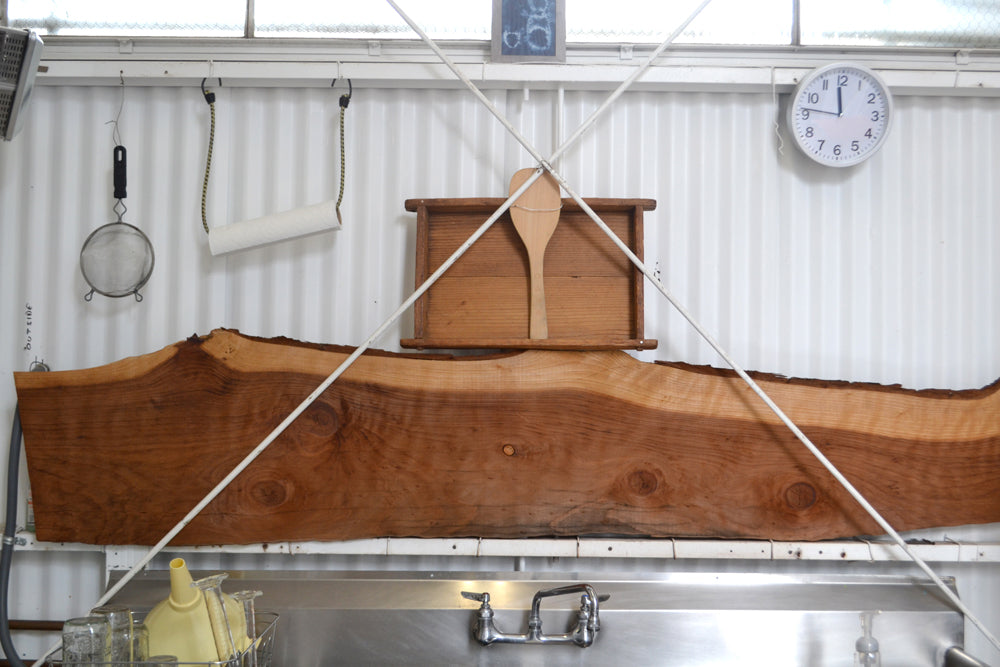
Order a bottle of Den Sake today!
I met Yoshihiro Sako back in 2014 for the first time when I dined at Yuzuki in the Mission neighborhood of San Francisco, where he was the Sake Sommelier in the early to mid 2010s. Even back then it was hard not to notice the sparkle in his eye when he'd talk about sake.
Sako came to the U.S. in 2000, thinking he'd be here for 3 months. He enrolled in classes in the Bay Area and started acclimating to life as both a student and a bassist. He joined three bands and played gigs for the next few years.
In 2008, he found himself as the manager at Corkage, a sake and wine bar in the Western Addition. There, he said, "It was the first time I really got into sake and wine. It was a great place to study. They had over 100 sakes and 100 wines on the menu. I acted as the manager and bartender at Corkage and was the beverage buyer for all of the restaurants and bars in that group including Tsunami, Nihon Whisky Lounge, and Corkage." For the five years he was there, he lived and breathed sake and wine. He liked the intimate interaction he had with customers at the bar who, "just wanted to drink something good." He serviced a range of customers – including people who were new to sake, to customers were steeped in the wine world.
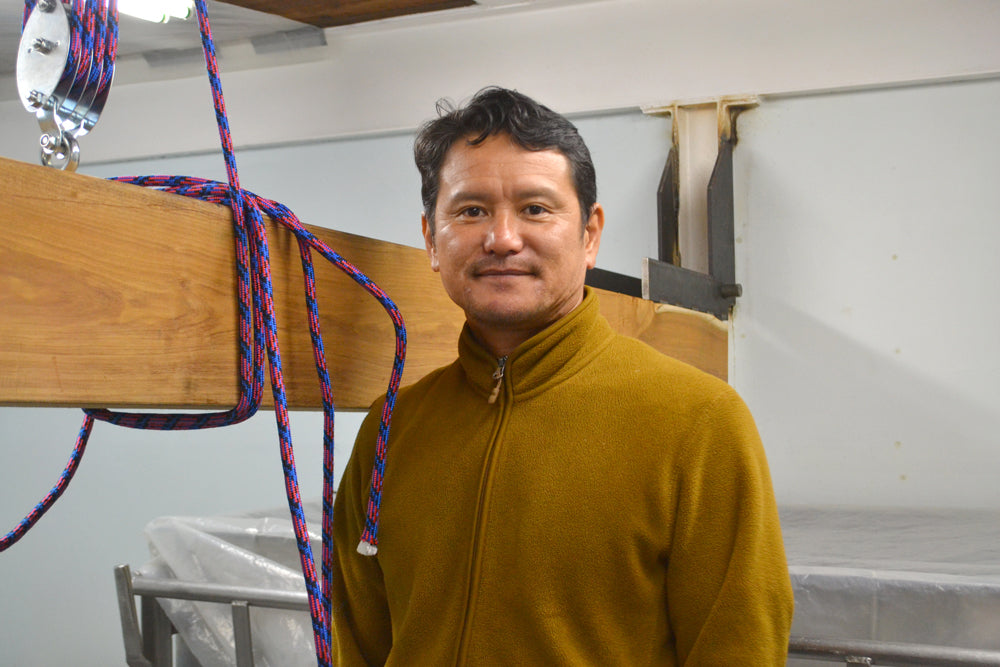 Yoshihiro Sako, owner and toji (master brewer) of Den Sake Brewery in Oakland
Yoshihiro Sako, owner and toji (master brewer) of Den Sake Brewery in Oakland
After five years at Corkage, he switched gears to join the opening team at Yuzuki as the Sake Sommelier. "I continued to learn a lot there. Yuko-san (owner of Yuzuki) has such a sensitive palette and pays attention to the details. Every night at Yuzuki, during staff meal we'd talk about how the sake was working with the menu. Yuzuki is where I really learned about how sake pairs with food."
The seed for Den Sake was planted in 2015, when Sako started to theorize on how he could make sake himself. "To complete my desire to know more about sake, I knew had to get fully into it – that meant brewing it, not just drinking it."
He started dipping into his savings to experiment with sake. While formulating his plans for making sake stateside, he knew he had to go to the source. So he took the opportunity to apprentice at sakes in Japan. His first apprenticeship was at Kubota Brewery in Kanagawa-ken (not to be confused with the Kubota sake by Asahi Brewery), which is located in his hometown of Sagamihara, just west of Tokyo.
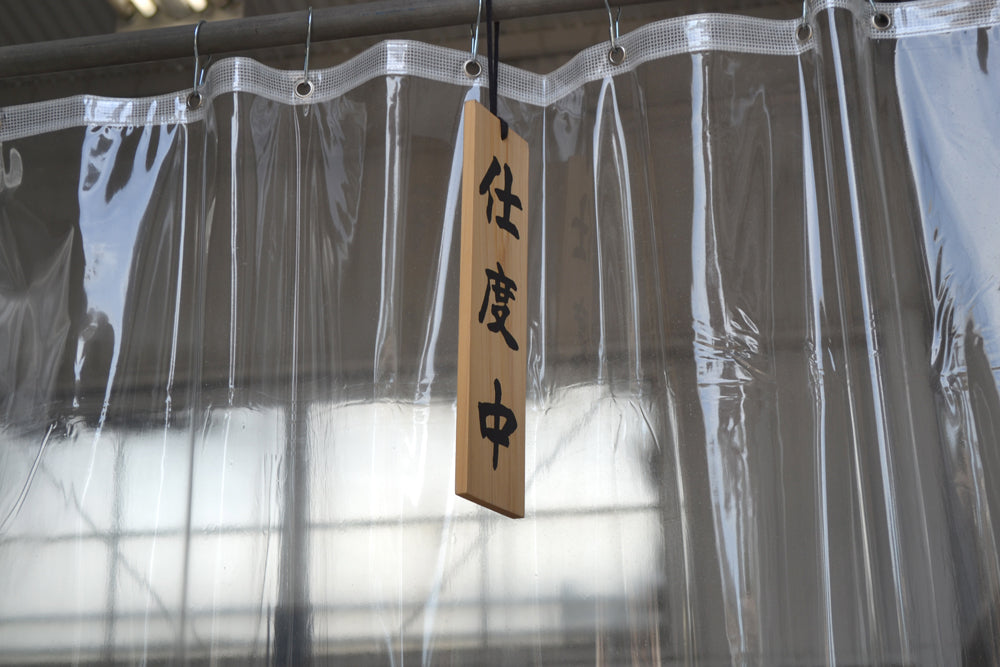 Den Sake Brewery entrance
Den Sake Brewery entrance
Sako then apprenticed on and off from 2014 to 2017 at Shiokawa Sake Brewery. "Shiokawa-san at Shiokawa Brewery has a lot of experience brewing outside of Japan, including in Indonesia and China. That's why I wanted to learn from him. Shiokawa-san knew how to adapt to water and rice outside of Japan when brewing sake."
Brewing outside of U.S., Sako learned quickly that there was a lot of adapting involved. "The first challenge for sake brewers in the U.S. is that we don't have access to specialized sake-making equipment. We have to use beer or wine-making equipment. The second challenge is the rice. The rice in the U.S. is much more dry, so all the data from Japan related to water absorption for sake-making doesn't apply."
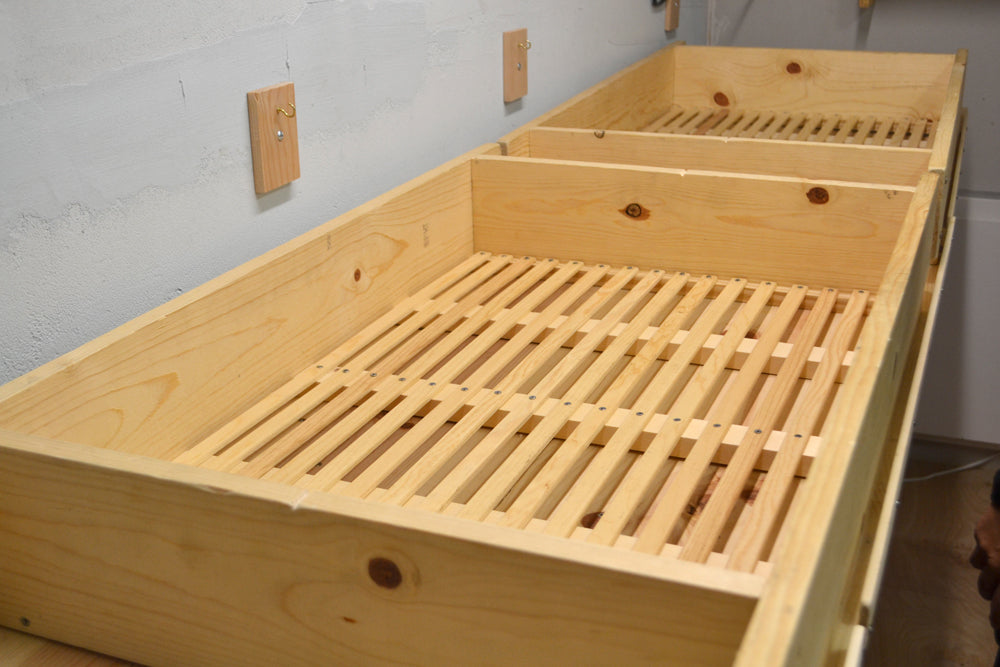 Sako built his own trays to grow koji, made out of pine which is not traditionally used in Japan
Sako built his own trays to grow koji, made out of pine which is not traditionally used in Japan
He also explained that Bay Area water is super soft, containing next to no minerals, making it hard for koji to grow. All of these differences require Sako to work on his toes, be creative, and modify what he had learned in Japan to make it work in Oakland.
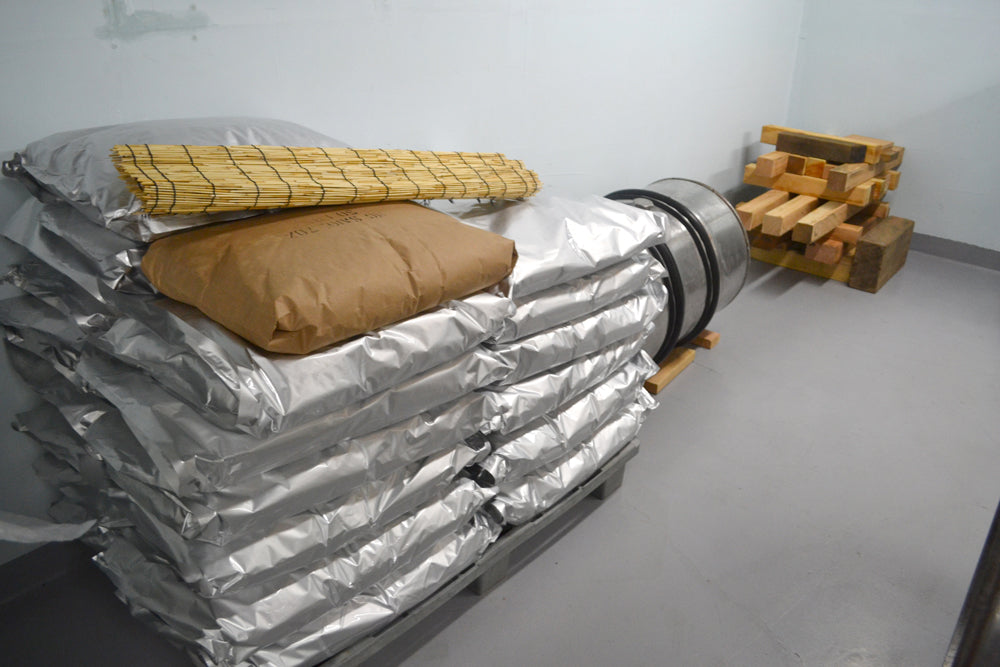 Sako uses Calhikari rice from Rue + Forsman Ranch in the Sacramento Valley
Sako uses Calhikari rice from Rue + Forsman Ranch in the Sacramento Valley
Den Sake joins a small but growing list of U.S. craft sake makers including Brooklyn Kura, Moto-i and Texas Sake. When asked about how the reception for sake has changed in U.S., Sako said, "People in the U.S. know more about Japanese food now than they did 10 years ago. The bar for knowledge and quality has gotten higher. Lots of people are traveling to Japan and want to find what they experienced in Japan back in the states. They want to know more, sometimes from a more academic perspective."
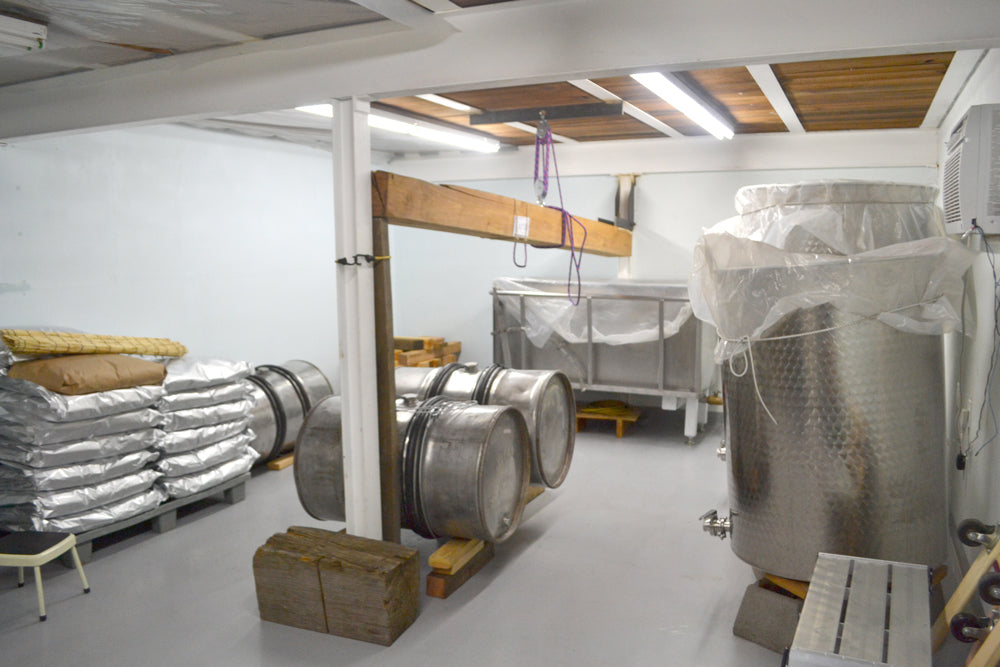 Tanks, press and rice storage at Den Sake
Tanks, press and rice storage at Den Sake
In fact, Sako draws a parallel between how sake is now presented in the U.S., as wine has in the past. "Sake in Japan didn't go in an academic direction like wine did in the west. In Japan, people don't drink sake with their brain, they just enjoy it. For example, with wine we think about how the tannins interact with protein and develop food pairings based on those logical conclusions. And now, as sake enters the U.S., people want to study it like they do with wine."
As people approach sake in a more cerebral way, he added, "When pairing with sake, you have to switch your perspective (from wine). It's not about noticing acid (most commonly tartaric, malic and citric acids in wine), it's about noticing umami (amino acid)."
Spending just an hour with Sako, discussing different aspects of sake and sake-making in the U.S. seemed like we just scratched the surface. After being in the sake industry for over 10 years, Sako is such a valuable resource for us!
 Sako showing us his hand made pressing contraption
Sako showing us his hand made pressing contraption
Even with all the limitations he faces as a brewer in the U.S., Sako's first batch of sake exhibits the delicate and refined qualities that you would find in a Japanese sake. His attention to detail and skilled use of koji and yeast yields sakes that can be enjoyed cup after cup, balancing fresh fruitiness, acidity, and umami – all with a clean crisp ending.
 Freshly-pressed Den Sake
Freshly-pressed Den Sake
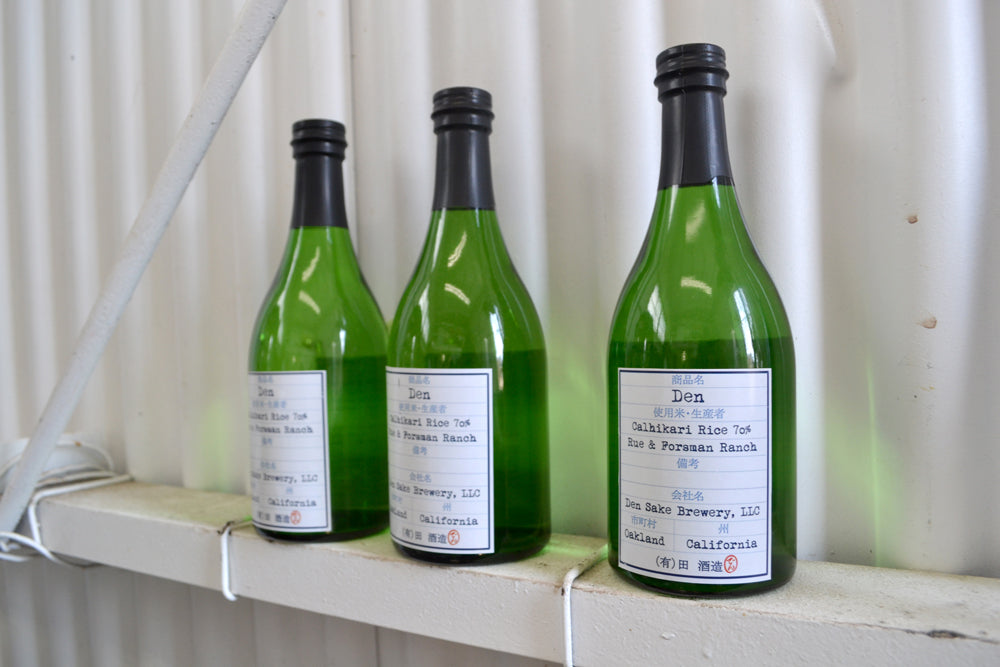 Den Sake bottles
Den Sake bottles
Just five years ago (or even a year ago!), it would have been hard to image that Oakland would have its own sake brewery. And it would have only been in our wildest dreams that it'd be so good.
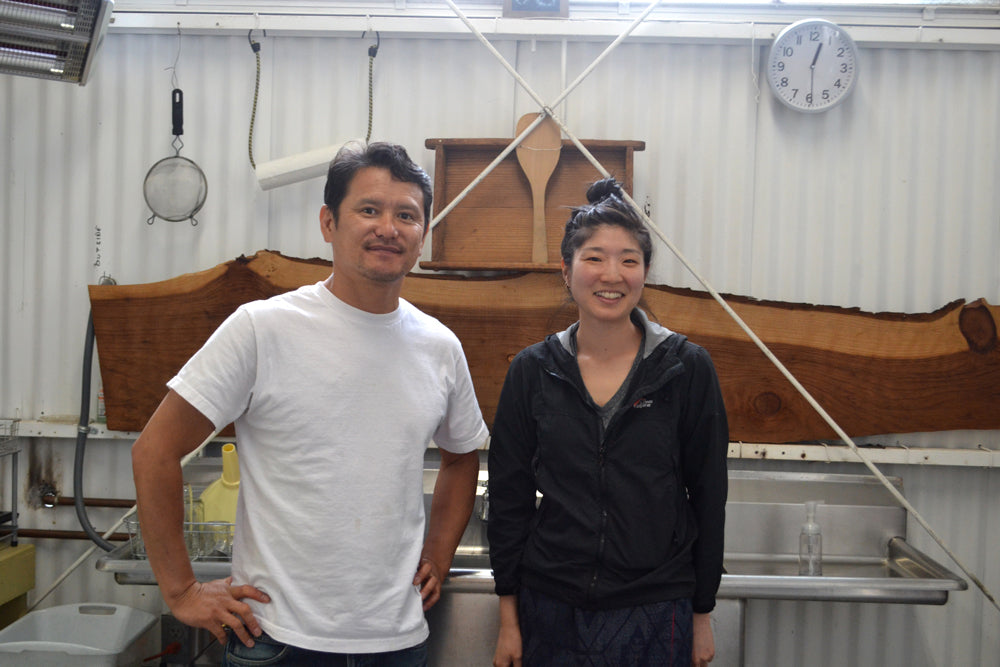 Sako and me at Den Sake Brewery in Oakland
Sako and me at Den Sake Brewery in Oakland
We look forward to watching Den Brewery grow and develop more sakes for the Bay Area and beyond. Find fresh bottles of Den at Umami Mart!

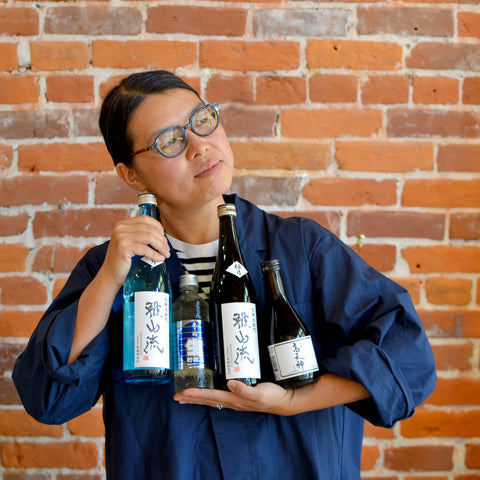

Comments (1)
Great article. Can’t wait to try a taste!